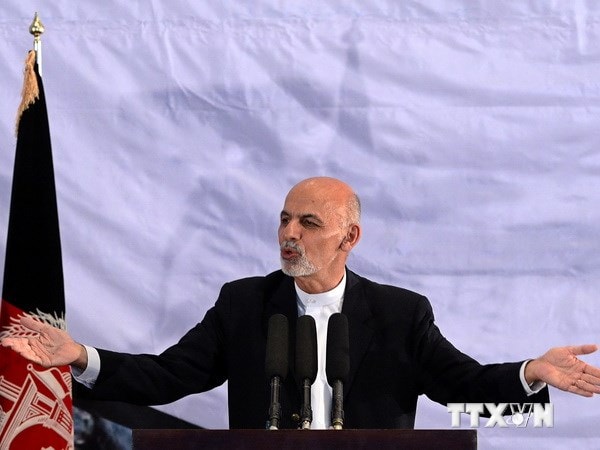Afghanistan tightens security ahead of presidential inauguration
On September 29, Afghanistan's first new president in a decade, Mr. Ashraf Ghani, will take office in the capital Kabul under tight security conditions.
 |
| New Afghan President Ashraf Ghani. (Source: AFP/VNA) |
The inauguration ceremony took place at around 10:00 a.m. on September 29 (local time, or 12:30 p.m. Vietnam time) at the presidential palace.
The exact schedule and guest list for the ceremony were not disclosed, but Xinhua news agency quoted the Pakistani Foreign Ministry as saying that President Mamnoon Hussain would attend. According to Reuters news agency, Senior White House Advisor John Podesta will also attend the ceremony.
This was the first democratic transfer of power in Afghanistan's history, but it was far from smooth. Both Mr. Ashraf Ghani and his rival candidate, Abdullah Abdullah, claimed victory, plunging the election into a stalemate that lasted three months.
Under pressure from the United Nations and the United States, the two candidates gradually agreed to form a unity government. Mr. Ghani was announced as President of Afghanistan after the country conducted an election inspection of nearly 8 million votes.
Also on September 29, Mr. Abdullah will officially assume the position of chief executive, a new position equivalent to prime minister, for a two-year term. This is considered a major change in the leadership style that Afghanistan has applied since 2001.
Security in Kabul, already tight, has been stepped up amid fears that Taliban militants may try to disrupt the ceremony or attack international officials.
On September 28, a car bomb exploded right outside the Afghan presidential palace complex, injuring the driver.
Fighting the increasingly brazen insurgency is one of the major problems facing the new government, which has seen the Taliban carry out a series of aggressive attacks in recent months.
One of the first things Mr. Ghani is expected to do as president is to sign a bilateral security agreement (BSA) with the United States, allowing 12,500 troops from the U.S.-led coalition to stay in Afghanistan to train the country's new army and police force.
In addition to counter-terrorism, President Ghani’s administration also has to shoulder the task of restoring life to a country affected by war and poverty for decades. The new Afghan government will immediately face a fiscal crisis, forced to delay October salaries for civil servants because the budget currently does not have the necessary $116 million.
Already heavily dependent on foreign aid, Kabul has just had to borrow an additional $537 million from the US and other donors to cover expenses until the end of 2014.
On the other hand, Afghan officials hope that former Finance Minister Ghani, with his long experience working for the World Bank (WB), will fight against chronic corruption.
In a related development, a VNA reporter in Brussels quoted a military source as saying that Belgian F-16 fighter jets, which have been continuously present in Afghanistan for the past six years, made their last flights on September 28.
The squadron provides air support to ground troops of the NATO-led International Security Assistance Force (ISAF) in Afghanistan, based in Kandahar since September 2, 2008, and has logged a total of 16,000 flight hours over Afghanistan.
In addition, NATO AWACS aircraft have also officially ended their mission, with the last AWACS aircraft returning to base in Geilenkirchen (Germany) on September 25. NATO has decided not to use this type of aircraft in the new mission to train Afghan security forces from January 1, 2015.
Instead, control of fighter jets' operations over Afghan airspace will be carried out by Qatar's Al-Udeid Warning and Control Center.
According to Vietnam+






